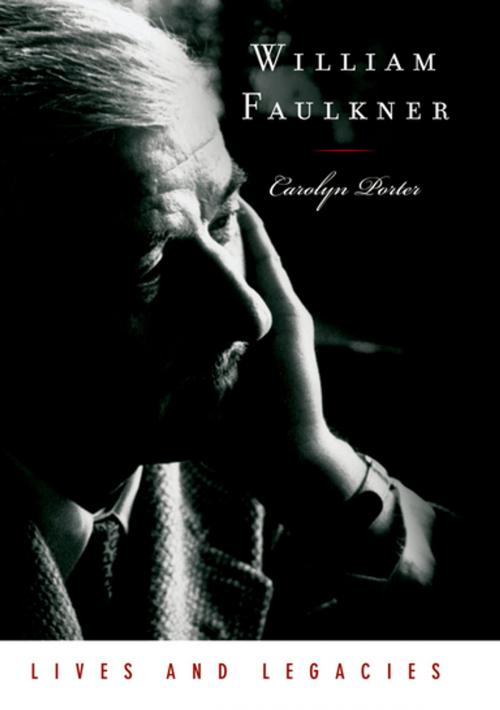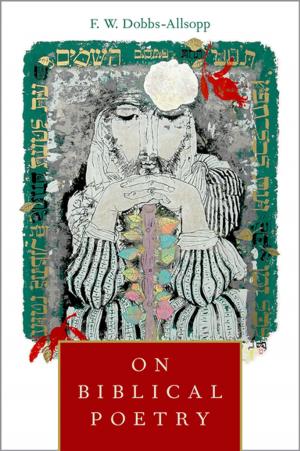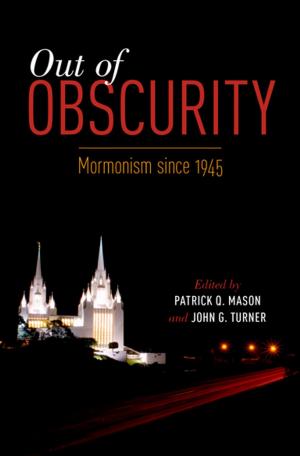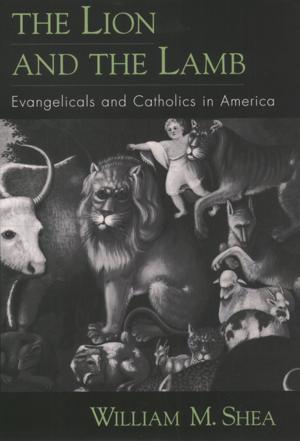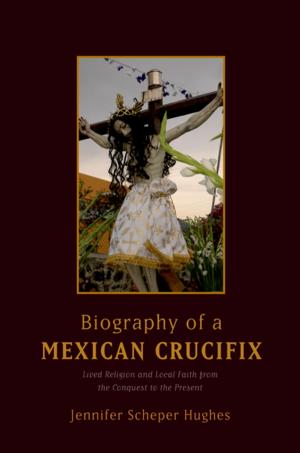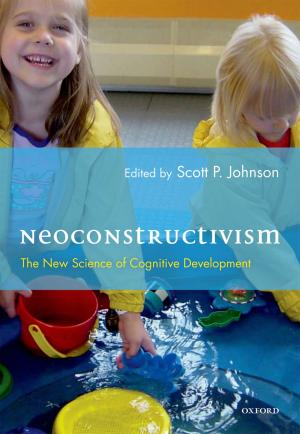William Faulkner
Lives and Legacies
Fiction & Literature, Literary Theory & Criticism, American, Biography & Memoir, Literary| Author: | Carolyn Porter | ISBN: | 9780199885916 |
| Publisher: | Oxford University Press | Publication: | May 24, 2007 |
| Imprint: | Oxford University Press | Language: | English |
| Author: | Carolyn Porter |
| ISBN: | 9780199885916 |
| Publisher: | Oxford University Press |
| Publication: | May 24, 2007 |
| Imprint: | Oxford University Press |
| Language: | English |
In this newest volume in Oxford's Lives and Legacies series, Carolyn Porter, a leading authority on William Faulkner, offers an insightful account of Faulkner's life and work, with special focus on the breathtaking twelve-year period when he wrote some of the finest novels in American literature. Porter ranges from Faulkner's childhood in Mississippi to his abortive career as a poet, his sojourn in New Orleans (where he met a sympathetic Sherwood Anderson and wrote his first novel Soldier's Pay), his short but strategically important stay in Paris, his "rescue" by Malcolm Crowley in the late 1940s, and his winning of the Nobel Prize. But the heart of the book illuminates the formal leap in Faulkner's creative vision beginning with The Sound and the Fury in 1929, which sold poorly but signaled the arrival of a major new literary talent. Indeed, from 1929 through 1942, he would produce, against formidable odds--physical, spiritual, and financial--some of the greatest fictional works of the twentieth century, including As I Lay Dying, Sanctuary, Light in August, Absalom, Absalom! and Go Down, Moses. Porter shows how, during this remarkably sustained burst of creativity, Faulkner pursued an often feverish process of increasingly ambitious narrative experimentation, coupled with an equally ambitious thematic expansion, as he moved from a close-up study of the white nuclear family, both lower and upper class, to an epic vision of southern, American, and ultimately Western culture. Porter illuminates the importance of Faulkner's legacy not only for American literature, but also for world literature, and reveals how Faulkner lives on so powerfully, both in the works of his literary heirs and in the lives of readers today.
In this newest volume in Oxford's Lives and Legacies series, Carolyn Porter, a leading authority on William Faulkner, offers an insightful account of Faulkner's life and work, with special focus on the breathtaking twelve-year period when he wrote some of the finest novels in American literature. Porter ranges from Faulkner's childhood in Mississippi to his abortive career as a poet, his sojourn in New Orleans (where he met a sympathetic Sherwood Anderson and wrote his first novel Soldier's Pay), his short but strategically important stay in Paris, his "rescue" by Malcolm Crowley in the late 1940s, and his winning of the Nobel Prize. But the heart of the book illuminates the formal leap in Faulkner's creative vision beginning with The Sound and the Fury in 1929, which sold poorly but signaled the arrival of a major new literary talent. Indeed, from 1929 through 1942, he would produce, against formidable odds--physical, spiritual, and financial--some of the greatest fictional works of the twentieth century, including As I Lay Dying, Sanctuary, Light in August, Absalom, Absalom! and Go Down, Moses. Porter shows how, during this remarkably sustained burst of creativity, Faulkner pursued an often feverish process of increasingly ambitious narrative experimentation, coupled with an equally ambitious thematic expansion, as he moved from a close-up study of the white nuclear family, both lower and upper class, to an epic vision of southern, American, and ultimately Western culture. Porter illuminates the importance of Faulkner's legacy not only for American literature, but also for world literature, and reveals how Faulkner lives on so powerfully, both in the works of his literary heirs and in the lives of readers today.
